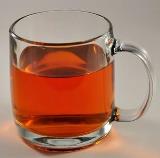|
Organic garden fertilizers should be rich in trace elements.The best organic garden fertilizers will be rich in trace minerals. Revolutionize plant nutrition with trace minerals. Getting trace minerals back into the plant helps restore health to a plant, and can result in less disease and fewer destructive sapping insects. However, perhaps the greatest impact of feeding your plants needed trace minerals is that it increases their nutrient density, and makes crops so delicious. A man had been giving his 80 year old neighbor squash from his garden for years. After fortifying his garden with concentrated sea minerals, he shared his squash with her. Her comment: “I know squash, and this is the best squash I ever ate”. Another woman, after tasting tomatoes from a garden rich in trace minerals, commented: “I haven’t tasted a tomato like this since I was a little girl”. Trace minerals really do make a huge difference in nutrition, and in taste. Sadly, over the last 70 years, modern farming methods which use chemical fertilizers have greatly depleted available trace minerals from our soils. Most soils have been reduced down from 74 minerals to 8 to 20.
However, these very good practices may not contain all the needed trace minerals. What then is a good source for trace minerals? Fish, kelp, volcanic ash, rock dust, humic acids and sea minerals are all good. Of these, one of the most powerful ways to re-mineralize plants and soil is through low sodium, concentrated sea minerals. Liquid sea minerals are in ionic form, and are readily available to the plant. When sprayed on the leaf, it may only be 2 to 3 days before leaves turn a noticeable darker color of green. Sea minerals also are a great source of food for beneficial bacteria in the soil, thus strengthening the soil food chain.
|



